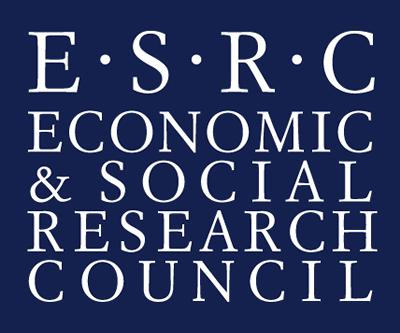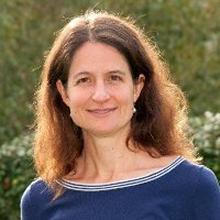European Research Council funded PhD +3 Studentship
Nonmarital childbearing in comparative perspective: trends, explanations, and lifecourse trajectories
We are currently offering one PhD Studentship in Demography. The project will explore changes in the family across countries, with a specific focus on the intersection between childbearing and union formation behavior. The successful student will work under the direction of Dr. Brienna Perelli-Harris, who has been awarded a European Research Council starting grant for five years of research.
Background
Over the past several decades, nonmarital childbearing, especially childbearing within cohabitation, has increased dramatically in Europe, Australia, and the U.S. The Nonmarital Childbearing Network (led by Perelli-Harris) is an international group of researchers organized to study the development of nonmarital childbearing and family change more generally. In order to examine how and why nonmarital childbearing has increased, the ESRC-funded project will study the trends and correlates of nonmarital childbearing from a number of analytic levels and methodological perspectives. The project aims to: advance our understanding of the development of nonmarital childbearing in diverse contexts; contribute to debates on the underlying causes of this increase; employ innovative statistical techniques to analyze and classify patterns across countries; and develop a new theoretical framework for understanding the diffusion of family change. Using a unique database of comparative nationally representative surveys, the project will provide insights into the reasons why women give birth within different types of partnerships or as single mothers.
The Ph.D. student will work on different aspects of the project, for example use demographic methods to compare trends in childbearing and union formation across countries, or analyze the potential consequences of having children in different types of unions. The Ph.D. student could also conduct an in-depth study on changes in cohabitation and nonmarital childbearing in one or more countries. The exact topic of study is flexible, but it is expected that the student will contribute to the overall project examining union and fertility behaviour across countries.
The University of Southampton and the ERC Centre for Population Change
The University of Southampton is ranked in the top 10 of research intensive Universities in the UK and in the top 100 Universities worldwide. Social Sciences is home to the largest academic group of demographers in the UK and hosts the ESRC Research Centre for Population Change. In the 2008 Research Assessment Exercise research within the disciplines of demography, social statistics, sociology, and social policy was ranked 3rd in the UK with 70% of its research recognised as internationally excellent and 35% as world class. The School offers both an MSc and PhD programme in Demography. There are currently over 20 PhD students studying demographic and related topics, ensuring a vibrant research culture. The successful applicant will be able to take advantage of training and research activities with other research students in the Division of Social Statistics, in the School of Social Sciences and within the Graduate School of the Faculty of Human and Social Sciences.
The Ph.D. student will benefit from close interaction with members of the ESRC Centre for Population Change, which is a joint initiative between the University of Southampton and a consortium of Scottish Universities in partnership with the Office for National Statistics and the General Registrar Office in Scotland, and is directed by Professor Jane Falkingham (University of Southampton) and co-directed by Professors Maria Evandrou and Elspeth Graham (University of St Andrews). The ESRC Centre for Population Change brings together experts from across the social science disciplines to carry out research that will lead to a better understanding of the key drivers of population change and the implications for economic welfare and social support at the national, local, household and individual level. The Centre is co-located alongside a number of other world recognised research centres including the hub of the ESRC National Centre for Research Methods (NCRM) and the Southampton Statistical Sciences Research Institute (S3RI) (one of the largest groups of statisticians in the UK).
Eligibility
Applicants for the Ph.D. studentship should have a postgraduate degree in demography or a related social science (e.g. an ESRC-recognised Research Training masters course), a very good undergraduate degree (2:1 or above) or equivalent experience. They should also have good computing skills and an interest in family demography. These studentships are open to all candidates, regardless of place of residence, and both fees and stipends can be paid for students from outside the UK.
What the award pays
For the Ph.D. position, the ESRC award pays all University tuition fees, plus an annual maintenance stipend (for the 2010-2011 academic year this was set at £13,590). In addition, students applying for Demography awards will normally qualify for an additional maintenance stipend of £3,000 per year for award-holders whose study or research involves Advanced Quantitative Methods. Finally, each studentship includes a Research Support Grant of up to £1,000 per year for each of the three years of MPhil/PhD study.
Application Procedure
No separate application form is required to apply for the studentship. Please apply following the steps below:
Go to 'how to apply'
(https://www.southampton.ac.uk/postgraduate/pgstudy/howdoiapplypg.html)
Click on the button at the bottom of the page marked ‘Apply online here’
Select the button marked ‘Research’ (if not already checked)
Click the arrow to the right of ‘School’, pull down the menu and highlight and click ‘School of Social Sciences’
Click the button marked ‘Search for Programme’
Click ‘Apply online’ beside the MPhil/PhD in Social Statistics
When completing the form, please state in Section 8 (funding) that you wish to be considered for the ERC funded project ‘Nonmarital Childbearing/Family Change in Comparative Perspective.’
Please use the personal statement section to upload a 2-page description of the topics that you would like to research and how you envision yourself contributing to the overall project, as well as to upload a copy of your CV.
Finally, if you are intending to use quantitative methods in your research, submit the application form for Advanced Quantitative Methods status.
Further information
Informal inquiries may be made to Dr Brienna Perelli-Harris (B.G.Perelli-Harris@soton.ac.uk)
The deadline for applications is 6 May 2011.
Related Staff Member

